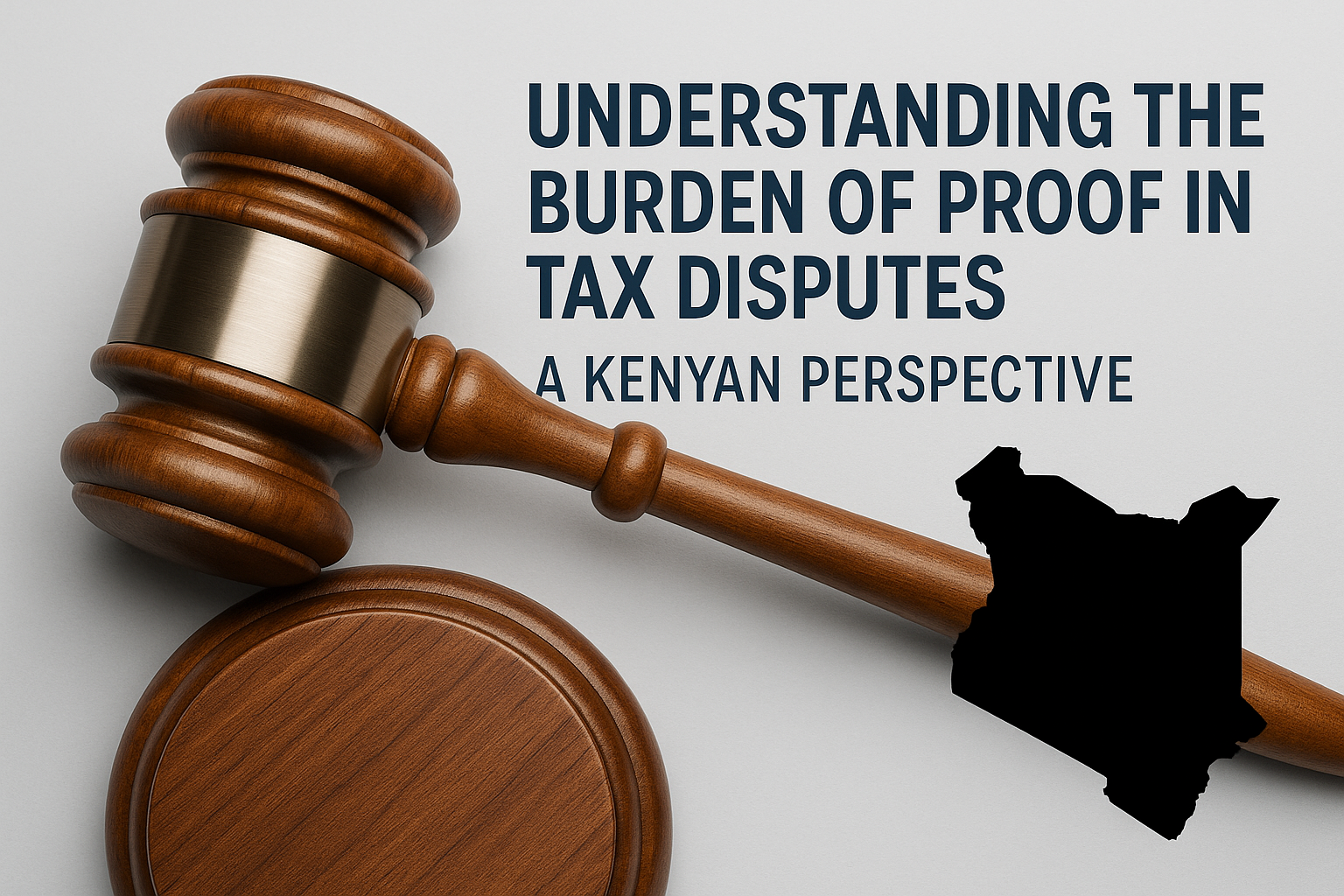Real estate in Kenya remains an attractive sector of the economy partially driven by a cultural disposition to property ownership and increased urbanisation. Grabbing a piece of this pie is often slimy and tax regulation doesn’t make might it any easier. Among the key issues that the selling partner in a real estate transaction must contend with is the tax treatment of the sale; will the sale be evaluated under capital gains or under corporate tax rate?
Classification of real estate income as subject to corporate tax or capital gains tax is an issue that hinges on the nature of the transactions involved and the intent behind them. This distinction is crucial because corporate tax and capital gains tax can have significantly different rates and implications for a company’s financial health. The determination of how income from real estate is taxed-whether as part of the regular business operations (and thus subject to corporate tax) or as a result of a capital transaction (and thus subject to capital gains tax)- has significant impact on the tax liability, cashflow and financial health of an entity.
A distinction between Capital Gains and Corporate tax
Capital gains tax in Real estate is a tax that is levied on transfer of property situated in Kenya. Capital Gains Tax is declared and paid by the seller of the property. Net Gain here simply means the proceeds value after deducting acquisition and incidental costs. The tax is charged on the net gain at a rate of 15%. Capital Gain tax is a final tax.
Corporate tax is the tax on the profits of a business that shall be deemed to have accrued in or to have been derived from Kenya. The tax rate is 30% for a resident company and 37.5% for a foreign company (for example a branch in Kenya of a company incorporated in a foreign country).
As you will observe from the above, capital gains being a final tax means that the seller of the property can only pay either of the taxes and not the two taxes for the same transaction. The question then becomes, which of the two should be applied for a real estate company?
Capital Gains or Corporate tax?
An important precedent was set by Kenya’s Tax Appeals Tribunal (TAT) making a clear distinction on which of the taxes would be applied for a real estate company. The dispute was between the Kenya Revenue Authority (KRA) and Ruaraka Diversified Investments Limited (RDL), whose principal business is real estate.
RDL bought land 2011 from East African Breweries Limited (EABL). The land was subsequently divided and sold to three entities in three different transactions between the years 2013 and 2015. RDL declared Capital Gain Tax for the transactions.
KRA opposed the treatment and observed that the land transactions undertaken by RDL were corporate tax events and not capital gains tax events. KRA’s position was that the action of the seller holding on to the land to be sold later (so that it would acquire value) amounted to a trade. KRA then proceeded to issue a tax assessment which RDL opposed and the matter escalated to the TAT.
Badges of trade
The resolution of such disputes often requires presenting detailed evidence to tax authorities or courts, potentially including internal documents, sales records, and testimony about the company’s intentions. Ultimately, the application of the badges of trade aims to objectively assess the nature of the transactions, guiding the tax classification and ensuring the appropriate tax treatment.
In adjudicating the matter as to which tax should be applied for the specified transactions, the TAT relied on a criterion developed by English law called the “badges of trade”. Although the badges can vary, they commonly include:
- Subject Matter of the Sale: If the property is a type the company typically deals in as part of its business, it might suggest a trading transaction.
- Frequency and Number of Transactions: Regular and frequent transactions are more indicative of trading.
- Length of Ownership: Short-term ownership before selling is often seen as indicative of trading.
- Reason for Sale: Selling a property acquired by inheritance might be treated as capital; selling developed property might be seen as trading.
- Supplementary Work: Significant development or renovation work can suggest the intention to sell at a profit, indicating trading.
- Circumstances of Sale: Sales driven by business necessity or external pressures might be treated differently.
- Motive: The initial motive for acquiring the property is crucial, where investment suggests capital, whereas buying to sell at a profit suggests trading.
Applying these badges of trade, the company would need to demonstrate that the properties were held as investments and that the sales were incidental to its investment strategy rather than its trading activities. This could involve showing that the properties were usually held for long periods, that sales are infrequent or result from strategic decisions to reallocate investment rather than regular business operations, and that any development work was intended to enhance long-term value rather than for immediate resale.
Conclusion:
In the end, the TAT ruled that the action of holding property for a period for the value to appreciate and thereafter selling with the aim of making profit constituted trade. Subsequently the income realized by the taxpayer from the sale of land was business income and not capital gains.
Each industry has its intricacies and complexities that might make breaking through challenging. From tax compliance to generating profits, any business venture, real estate or otherwise requires one to surround oneself with the experts of the trade to succeed. Knowledge after all is power and here at FHC we promise to lend a hand as you navigate Kenya’s ever-changing tax laws.














